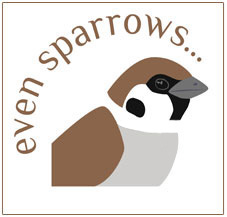

REMEMBERING COLUMBANUS
Posted: 07.11.24 in Articles category
On 23 November we remember the Irish Christian missionary who died on that day in 615 AD. For more than twenty years Columbanus travelled extensively around NW Europe, setting up monasteries across the territories of modern-day France, Germany, Switzerland and Austria before eventually arriving in Bobbio, Italy, in 614 where he died the following year. He was apparently an impetuous, headstrong and fearless character who was unafraid to challenge both political and religious authority, sometimes at considerable personal risk. In recent years Columbanus has been described as ‘Ireland’s first European’ and “the patron saint of those who seek a united Europe” according to one former French Foreign Minister. Clearly, he was a remarkable and talented man as a “poet, scholar, abbot, preacher, saint, co-founder of western monasticism, associate of kings and correspondent of popes” in the words of the late Cardinal Tomas O Fiaich.
Yet Columbanus was also a Celtic saint with a reputation for loving wild creatures. Various miracles are attributed to him including two relating to taming wild bears and a third escaping from hungry wolves. Flying birds were apparently attracted to him and would land on his shoulders to be caressed. And there is a curious tale with obvious echoes of the Exodus, recounted by Jonas of Susa in his hagiography written only twenty-five years after the saint’s death. He recounted that Columbanus and his monks lived at one time in a region experiencing severe famine. After three days of fasting, they found an abundance of birds that were scattered on the ground and didn’t fly away. The men gave thanks to God and for 3 days gathered up the birds for food like manna before a local priest with a supply of grain arrived, enabling the remaining flock of birds to leave unharmed.
During our Even Sparrows retreats I sometimes read out an extract from a homily that Columbanus gave about the Trinity. His words remind me of those of Jesus exhorting his followers to look at the birds, and of course the flowers, to learn more about God:
Who then is God? He is Father, Son and Holy Spirit, one God. Seek no farther concerning God; for those who wish to know the great deep must first review the natural world. For knowledge of the Trinity is properly likened to the depths of the sea, according to that saying of the Sage, And the great deep, who shall find it out? If then a man wishes to know the deepest ocean of divine understanding, let him first if he is able scan that visible sea, and the less he finds himself to understand of those creatures which lurk beneath the waves, the more let him realize that he can know less of the depths of its Creator; and as he ought and should, let him venture to treat less of Creator than of creature, since none can be competent in the greater if he has not first explored the less, and when a man is not trusted in the lesser, in the greater how should he be trusted? For why, I ask, does a man ignorant of earthly things examine the heavenly? Oh, those who speak idle words, Not knowing … either what they speak or whereof they affirm! …. Therefore the great Trinity is to be piously believed and not impiously questioned; for the one God, the Trinity, is an ocean that cannot be crossed over or searched out. High is the heaven, broad the earth, deep the sea and long the ages; but higher and broader and deeper and longer is the knowledge of Him who is not diminished by nature, who created it of nought.
…. Understand the creation, if you wish to know the Creator; if you will not know the former either, be silent concerning the Creator, but believe in the Creator.